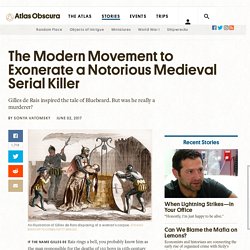

The 2,400-year-old Lady of Baza statue reveals insights into ancient Spain. ETRUSQUES. CIVILISATION. The History of Europe from 400 BC to the Present, Animated in 12 Minutes. What does the future of Europe look like?

Geopolitical times such as these do make one ponder such questions as, say, "In what shape (if any) will the European Union make it through this century? " European Imperialism. How the Normans changed the history of Europe - Mark Robinson. Historical Kingdoms/Names. What the Nazis driving people from homes taught philosopher Hannah Arendt about the rights of refugees. Facing a political revolt over immigration policies from the Christian Social Union partner in her coalition government, German Chancellor Angela Merkel agreed to a compromise, which would create “transit zones” or refugee camps along Germany’s southern border.

Under the agreement, migrants would be housed in designated transit areas, until German authorities determined their eligibility. If found to have registered in another EU country, immigrants would be turned back, assuming that country would accept them. Merkel had earlier opposed this step, fearing it would trigger border closures. Already, Italy and Austria have refused to accept returnees. And these are not the only ones. That millions of refugees exist in legal limbo, sadly, is not a new story. Who was Hannah Arendt?
Born in Hanover, Germany in 1906, Hannah Arendt studied theology and philosophy during her university years. The Greeks really do have near-mythical origins, ancient DNA reveals. Ever since the days of Homer, Greeks have long idealized their Mycenaean “ancestors” in epic poems and classic tragedies that glorify the exploits of Odysseus, King Agamemnon, and other heroes who went in and out of favor with the Greek gods.

Although these Mycenaeans were fictitious, scholars have debated whether today’s Greeks descend from the actual Mycenaeans, who created a famous civilization that dominated mainland Greece and the Aegean Sea from about 1600 B.C.E. to 1200 B.C.E., or whether the ancient Mycenaeans simply vanished from the region. Now, ancient DNA suggests that living Greeks are indeed the descendants of Mycenaeans, with only a small proportion of DNA from later migrations to Greece. And the Mycenaeans themselves were closely related to the earlier Minoans, the study reveals, another great civilization that flourished on the island of Crete from 2600 B.C.E. to 1400 B.C.E. (named for the mythical King Minos).
Witold Pilecki – historical snapshots – Medium. “Together with a hundred other people, I at least reached the bathroom.

Here we gave everything away into bags, to which respective numbers were tied. Here our hair of head and body were cut off, and we were slightly sprinkled by cold water. I got a blow in my jaw with a heavy rod. I spat out my two teeth. Bleeding began. Witold Pilecki was a Polish resistance fighter who decided to enter Auschwitz to gather intelligence on the camp and organize an inmate resistance. Until then little had been known about how the Germans ran the camp. But as Pilecki started to get messages out about what was happening inside the camp, “the underground army was completely in disbelief about the horrors.
These reports became a principal source of intelligence on Auschwitz for the Western Allies. After about two and a half years of imprisonment, Pilecki escaped, taking with him documents stolen from the Germans. Note: this is a colorized photograph of Pilecki. Sources: Gilles de Rais guilt questioned. If the name Gilles de Rais rings a bell, you probably know him as the man responsible for the deaths of 150 boys in 15th-century France, degenerate deeds that led to his apotheosis as an early serial killer and the inspiration for the legend of Bluebeard.

Those with an interest in true crime might be aware of another detail: Rais was a war hero, appointed Marshal of France at age 25, who served alongside Joan of Arc—it’s because of her death, the story goes, that he went mad and turned to heresy, alchemy, and murder. Brought to trial after dozens of children went missing in the Nantes countryside, Gilles de Rais was accused of, in the words of biographer Georges Bataille, “the abominable and execrable sin of sodomy, in various fashions and with unheard-of perversions that cannot presently be expounded upon by reason of their horror, but that will be disclosed in Latin at the appropriate time and place.” Rais confessed and was summarily executed on the October 16, 1440.